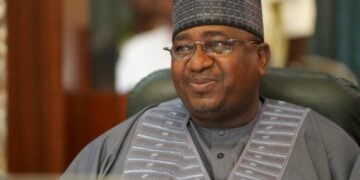Ghana’s recent decision to repatriate its gold reserves from the United States signals a significant shift in the nation’s economic strategy. Beyond the symbolic gesture of reclaiming control over its precious metal assets, Ghana’s move is underscored by a pragmatic desire to shield itself from the uncertainties of a destabilized US economy.
According to economic experts, Ghana’s decision comes at a crucial juncture amidst escalating global economic uncertainties and mounting concerns about the stability of the US financial system. Dr. Joseph Mensah, an economist specializing in international finance, asserts, “Ghana’s move to withdraw its gold reserves from American vaults is a prudent measure to mitigate risks and safeguard against potential economic volatility.”
By bringing its gold reserves back within its borders, Ghana aims to insulate itself from the repercussions of any downturns in the US economy, thereby reducing exposure to external shocks and vulnerabilities. Dr. Mensah further explains, “Repatriating gold reserves aligns with a broader trend among nations reassessing their financial strategies in light of evolving global dynamics. As geopolitical tensions escalate and trade disputes intensify, nations are increasingly prioritizing measures to assert greater control over their financial assets and reduce dependencies on foreign custodianship.”
Critics may raise concerns about logistical challenges and potential security risks associated with repatriating gold reserves. However, proponents argue that the benefits of withdrawing funds from a destabilized US economy far outweigh the risks. Dr. Mensah concludes, “By reclaiming control over its gold reserves, Ghana not only bolsters its economic sovereignty but also strengthens its resilience against external economic shocks.”
In conclusion, Ghana’s decision to repatriate its gold reserves from the United States reflects a strategic move towards safeguarding against economic volatility and asserting greater control over its financial destiny.
As Ghana takes proactive steps to insulate itself from external risks, the implications of this decision are poised to shape the nation’s economic trajectory for years to come, positioning it for greater stability and resilience in an uncertain global landscape.
Lazurus Odenge is an independent Journalist and writer





